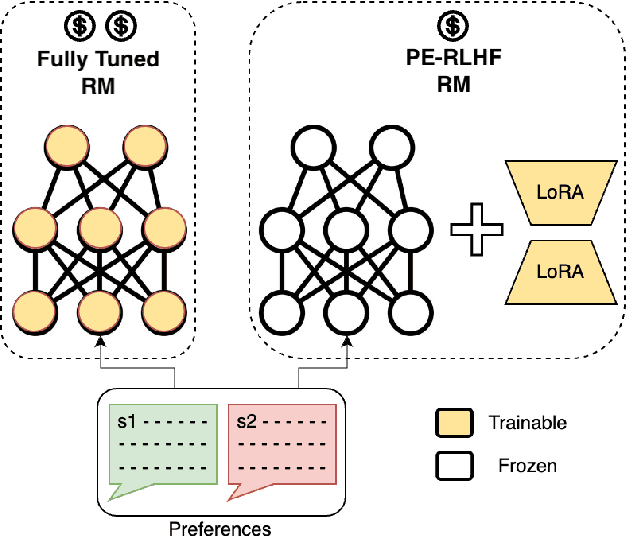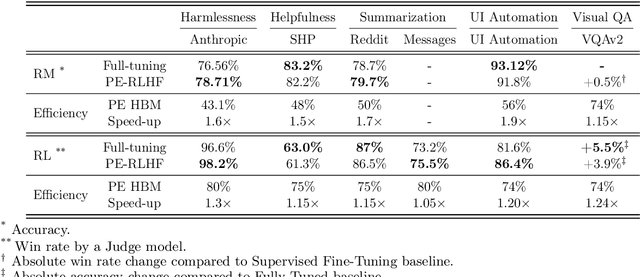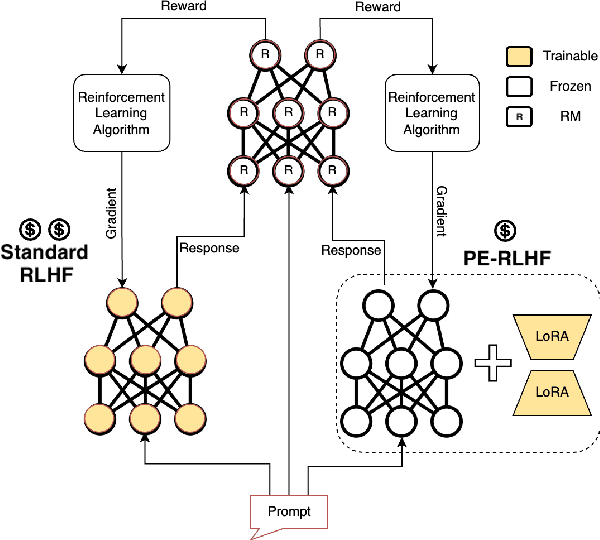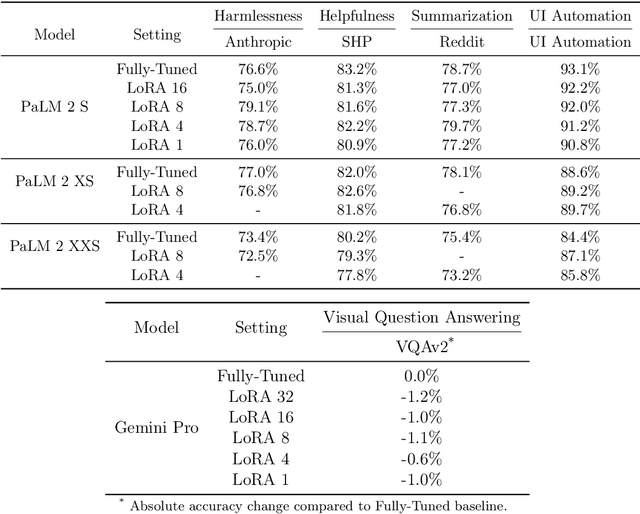Jarvis Jin
Improving Neutral Point of View Text Generation through Parameter-Efficient Reinforcement Learning and a Small-Scale High-Quality Dataset
Mar 05, 2025Abstract:This paper describes the construction of a dataset and the evaluation of training methods to improve generative large language models' (LLMs) ability to answer queries on sensitive topics with a Neutral Point of View (NPOV), i.e., to provide significantly more informative, diverse and impartial answers. The dataset, the SHQ-NPOV dataset, comprises 300 high-quality, human-written quadruplets: a query on a sensitive topic, an answer, an NPOV rating, and a set of links to source texts elaborating the various points of view. The first key contribution of this paper is a new methodology to create such datasets through iterative rounds of human peer-critique and annotator training, which we release alongside the dataset. The second key contribution is the identification of a highly effective training regime for parameter-efficient reinforcement learning (PE-RL) to improve NPOV generation. We compare and extensively evaluate PE-RL and multiple baselines-including LoRA finetuning (a strong baseline), SFT and RLHF. PE-RL not only improves on overall NPOV quality compared to the strongest baseline ($97.06\%\rightarrow 99.08\%$), but also scores much higher on features linguists identify as key to separating good answers from the best answers ($60.25\%\rightarrow 85.21\%$ for presence of supportive details, $68.74\%\rightarrow 91.43\%$ for absence of oversimplification). A qualitative analysis corroborates this. Finally, our evaluation finds no statistical differences between results on topics that appear in the training dataset and those on separated evaluation topics, which provides strong evidence that our approach to training PE-RL exhibits very effective out of topic generalization.
PERL: Parameter Efficient Reinforcement Learning from Human Feedback
Mar 15, 2024



Abstract:Reinforcement Learning from Human Feedback (RLHF) has proven to be a strong method to align Pretrained Large Language Models (LLMs) with human preferences. But training models with RLHF is computationally expensive, and an overall complex process. In this work, we study RLHF where the underlying models are trained using the parameter efficient method of Low-Rank Adaptation (LoRA) introduced by Hu et al. [2021]. We investigate the setup of "Parameter Efficient Reinforcement Learning" (PERL), in which we perform reward model training and reinforcement learning using LoRA. We compare PERL to conventional fine-tuning (full-tuning) across various configurations for 7 benchmarks, including 2 novel datasets, of reward modeling and reinforcement learning. We find that PERL performs on par with the conventional RLHF setting, while training faster, and with less memory. This enables the high performance of RLHF, while reducing the computational burden that limits its adoption as an alignment technique for Large Language Models. We also release 2 novel thumbs up/down preference datasets: "Taskmaster Coffee", and "Taskmaster Ticketing" to promote research around RLHF.
 Add to Chrome
Add to Chrome Add to Firefox
Add to Firefox Add to Edge
Add to Edge